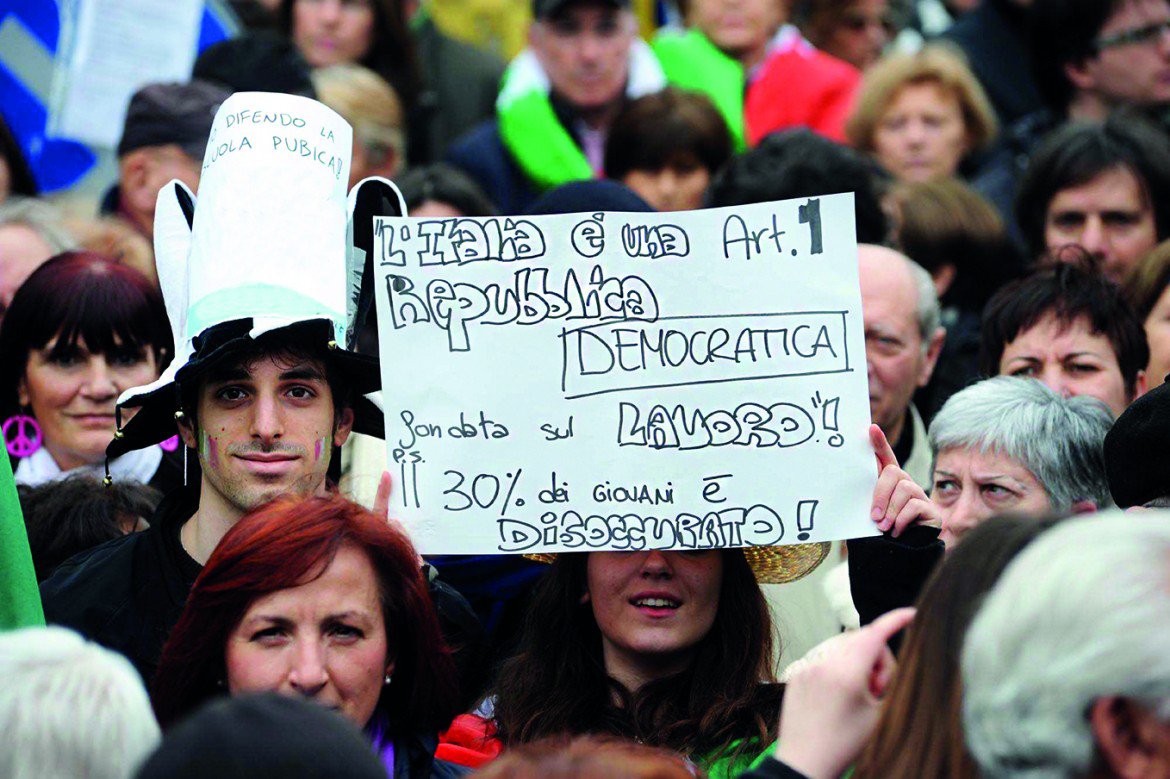Commentary
Italy has given up the fight against poverty
Poverty data paint a harsh picture of Italy’s growing poverty and inequality. A bill aimed to help the poor falls drastically short of the necessary funding level.

Monday was the World Day for the Eradication of Poverty, established in 1993 by the United Nations. Poverty and inequality are the major problems in Italy and in Europe. But what is even more serious is that it gets worse every year for us Italians. According to the latest figures from ISTAT, Eurostat, SVIMEZ and Censis, we are experiencing a real social and democratic emergency.
“Our social protection system is among the less effective in Europe and is unable to cope with the increase of inequality and poverty.” This was the statement given May 20 in the House of Representatives by the President of ISTAT, Giovanni Alleva, during the presentation of the 2016 report on the situation of the country.
Inequality and poverty increase, despite the economic growth. The figures are dramatic and at the same time unambiguous: the GINI index of income inequality rose from 0.40 to 0.51 between 1990 and 2011. This shows Italy had the worst increase in Europe after Britain, where the index is locked at 0.52. More than 28 percent of the population is at risk of poverty, especially in the south. Nearly 5 million Italians live in absolute poverty; this number has tripled over the last eight years. On the other hand, the number of billionaires increased to 342, showing that there is wealth, but the system redistributes it upwards.
The index of severe material deprivation affecting families remains stuck at 11.5 percent. ISTAT reveals how the Italian transfer system (excluding pensions) is not able to counter the trend of steady impoverishment, which affects mostly women, children, single parents, and resident migrants. The gradual deterioration in labor market conditions has contributed decisively to the growing inequality, affecting especially young people and women.
Job instability and insecurity are among the main factors that generate the greatest distribution disadvantages.
This explains the growth of the so-called “Neet”: Those under 30 who are not employed, do not study and have stopped looking for work. In 2015, there were over 2.3 million, a huge increase compared to 2008 but slightly down compared to 2014 (-2.7 percent). This confirms a situation in which young people of our country are among the most discriminated in Europe. The data from the ISTAT report on social mobility and employment effects of their studies testify to a blocked and/or highly selective social system, in which only those who have the best starting conditions have access to a good job.
Our welfare system is underfunded and inadequate. ISTAT gave the example of other European countries where, despite the austerity policies imposed by the governance, guaranteed and funded welfare systems have been able to prevent or contain the rise in poverty. The report shows that we could and should have done much more to prevent the social disaster.
The problem is certainly not a lack of resources, but the priorities set by the policy. The report shows how in 2014, the percentage of people at risk of poverty, after welfare allowances, was reduced by 5.3 points (24.7 to 19.4 percent) compared with an average reduction in the 27 E.U. countries of 8.9 points. The disparities within the E.U. are considerable. Ireland is the European country with the most effective system of welfare: it reduces the poverty risk indicator by 21.6 points, followed by Denmark (14.8 deduction points). The only country with a less effective social transfer system than Italy is Greece, where the indicator value is reduced by 3.9 points.
This situation explains why even with a growth in GDP, there has not been an improvement in living conditions for those in need, and the gap increases, as we have seen. As it has been amply demonstrated, there is no relationship between rising public debt and public spending. Our social spending is among the lowest in Europe, and despite the cuts, debt continues to grow.
The snapshot provided by ISTAT is the consequence of a missing policy for years to fight against inequality. Our government is resigned to the idea that it is not a responsibility of the Republic to combat the causes of poverty. It is increasingly focused on convincing us that welfare now represents a luxury that we can no longer afford. Selective universalism, social Darwinism and institutionalization of poverty are the consequences of a political culture that denies universalism, solidarity and social cooperation as fundamental instruments of democracy to guarantee dignity.
The regulatory framework adopted and the choices made during these last eight years of crisis confirm this: a 66 percent cut to the National Fund for Social Policies; €19 billion in missed funds transfers to municipalities because of the stability pact (IFEL data); the absence of a measure of income support, already active throughout Europe with the exception of Greece and Italy, invoked by many European resolutions since 1992; and the demonstrations and proposals by hundreds of thousands of citizens committed to introducing a dignified income. Finally the poverty bill, which allocates a miserable €1 billion to confront an emergency that would require €18 billion to ensure at least dignity.
Giuseppe De Marzo is an activist with the Misery Ladra campaign, by Gruppo Abele.
Originally published at http://ilmanifesto.info/poverta-litalia-ha-rinunciato-a-combatterla/ on 2016-10-16
